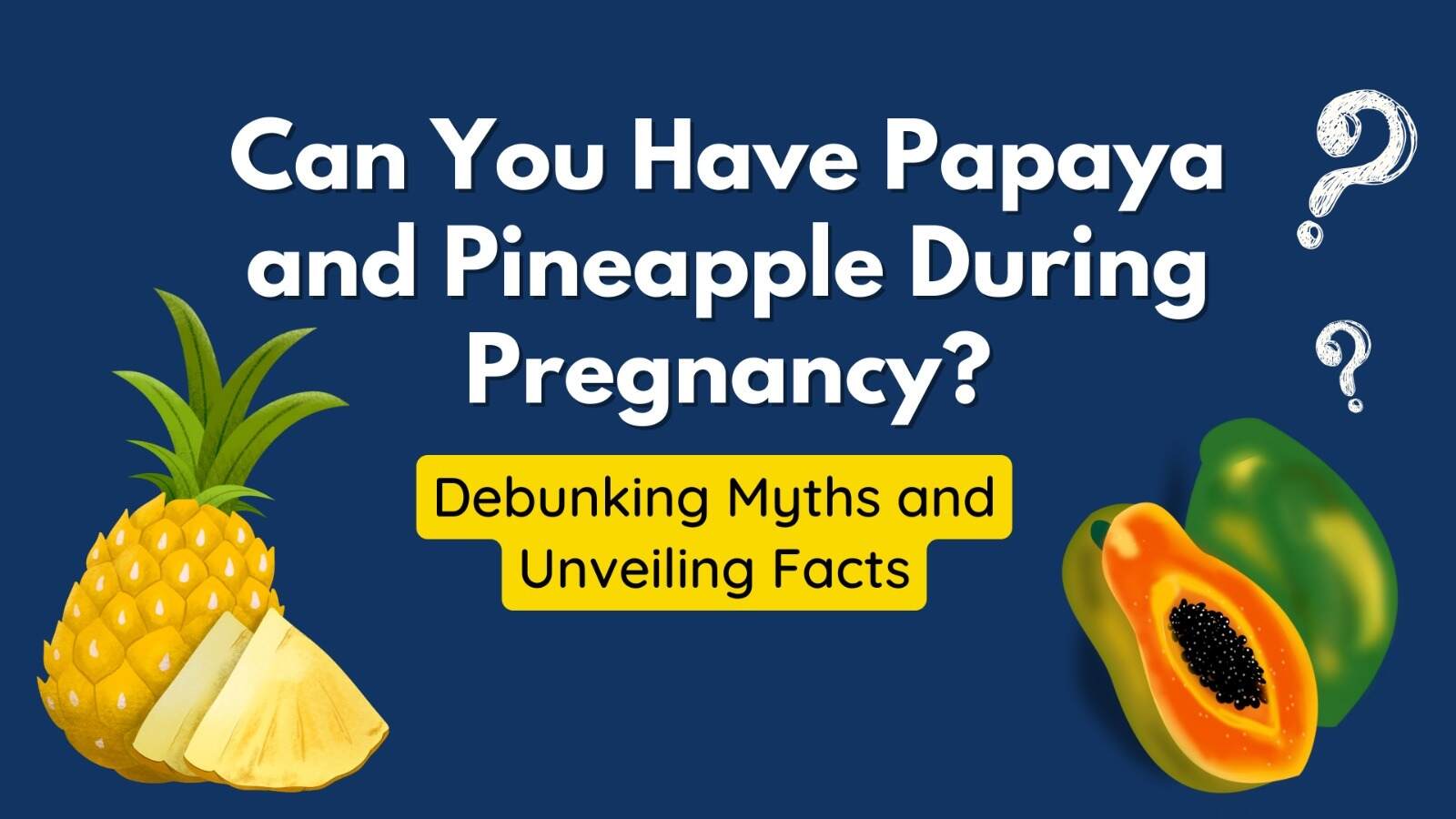Pregnancy is a time filled with joy and anticipation but also a period marked by caution, especially regarding diet and nutrition. Among the many food-related questions that arise during pregnancy, the safety of consuming papaya and pineapple is one of the most debated. Myths and misconceptions often surround these two fruits, leading to confusion about their effects on pregnant women. In this blog post, we will delve into the scientific facts and debunk the myths about eating papaya and pineapple during pregnancy.
Papaya in Pregnancy: Myths and Facts
Myth: Eating papaya can cause miscarriages.
Fact: The misconception that papaya can cause miscarriage stems primarily from the fact that papaya, especially when it is unripe or semi-ripe, contains latex. This substance can lead to uterine contractions, which in theory could cause a miscarriage or premature labor. However, ripe papaya is generally considered safe and is actually rich in vitamins A and C, and other beneficial nutrients.
Detailed Explanation:
Unripe papaya is rich in a latex-like substance that contains enzymes like papain and chymopapain, which have been shown in high doses to stimulate contractions in pregnant rats. However, the consumption of a normal amount of ripe papaya does not pose the same risk. Ripe papaya is low in latex and can be included in a pregnant woman’s diet due to its health benefits, including high vitamin C content, which aids in the absorption of iron from other foods.
Pineapple in Pregnancy: Myths and Facts
Myth: Pineapple can induce labor.
Fact: Pineapple contains bromelain, an enzyme that is thought to help soften the cervix and trigger labor. However, bromelain is mostly concentrated in the core of the fruit, which people generally do not eat. Moreover, the body cannot absorb significant amounts of bromelain through dietary intake of pineapple, making it unlikely to have any effect on labor induction.
Detailed Explanation:
To actually impact cervical ripening or labor, one would need to consume large quantities of pineapple core. Eating reasonable amounts of pineapple is perfectly safe and provides numerous health benefits. Pineapple is a rich source of vitamin C, manganese, dietary fiber, and antioxidants, making it beneficial for both the immune system and digestion.
Nutritional Benefits and Safe Consumption
Papaya:
- Ripe papaya is safe and beneficial as it contains high levels of vitamins A and C, potassium, and dietary fiber.
- It is beneficial for promoting digestive health and preventing constipation, a common problem during pregnancy.
- Ensure the papaya is fully ripe (the skin should be yellow, not green) and washed thoroughly to avoid any contamination with harmful substances.
Pineapple:
- Pineapple is a good source of hydration due to its high water content.
- The fruit’s high vitamin C content is essential for both the mother’s and baby’s health, aiding in the absorption of iron and strengthening the immune system.
- Moderation is key—consuming a few slices of pineapple a few times a week is generally safe.
Conclusion
The key takeaway for pregnant women is moderation and ensuring that the fruits are ripe and well-prepared. While myths can often lead to unnecessary fears, understanding the factual basis behind these common dietary concerns can help expectant mothers make informed decisions about their diets. Both papaya and pineapple can be part of a healthy, balanced diet during pregnancy, provided they are consumed in moderation and are fully ripe. Always consult with a healthcare provider to personalize dietary recommendations to suit your individual health needs during pregnancy.





